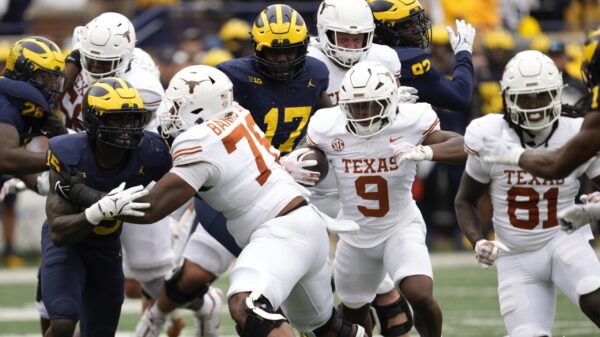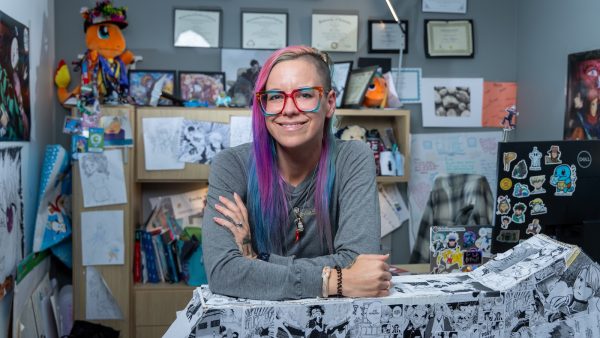A unique educational approach is transforming the college experience for first-generation students at the University of Colorado Denver (CU Denver). Instructor Emilie Waggoner integrates anime into her curriculum, helping students navigate their identities and build a sense of belonging in academic spaces.
Waggoner, who serves as CU Denver’s director of student transitions, teaches a popular seminar titled Anime Goes to College. Through this course, she empowers students to explore their identities while making the shift to college life, particularly focusing on those who may feel underrepresented or marginalized. “When you are making any kind of big transition, it can be scary,” Waggoner stated. “Anime tends to have magical world elements that show exactly that. How do you figure out your place in a new world? That’s what a lot of our students are doing.”
Creating a Welcoming Environment
The curriculum Waggoner has developed is designed to inspire self-reflection and encourage students to embrace their authentic selves. From the very first day, she invites students to bring their whole selves into the classroom. “When students see a character who they love going through the same struggles, it helps them reframe their own challenges,” she explained. This approach fosters a supportive environment, allowing students to feel more at ease during their transition to college.
Waggoner’s course is a vital component of CU Denver’s Lynx Summer Academy, a bridge program aimed at supporting first-generation students before they begin their first semester. The popularity of the course has led to its inclusion during the academic year, further demonstrating its impact.
Blending Pop Culture with Academic Rigor
In addition to her teaching role, Waggoner is an accomplished scholar. She is currently pursuing a doctor of education at CU Denver, building on her two master’s degrees. Her research focuses on anime fandom, identity development, and student transitions. In the summer of 2025, she will serve as the keynote speaker at the JAMS@AX Academic Symposium during the Anime Expo in Los Angeles, the largest anime convention in the United States.
Waggoner’s message resonates with first-generation students, who often feel pressure to conform to traditional academic norms. “You can be a serious scholar and still love anime. You can have pink hair and still publish academic research,” she remarked. This perspective allows students to see that there are multiple ways to belong in higher education.
In Waggoner’s Anime Goes to College course, students engage with peer-reviewed articles, write analytical papers, and explore developmental theory through the lens of anime and media studies. “When they read peer-reviewed research on anime, it blows their minds,” she said, emphasizing the significance of representation in academic discourse. “They see themselves reflected in scholarship for the first time. That’s where confidence blooms.”
The positive feedback from students highlights the effectiveness of her teaching methods. “One student said, ‘I feel smarter every time I leave this class,’” Waggoner noted, expressing her satisfaction with the outcomes.
Waggoner believes one of the strengths of anime is its ability to tackle profound questions such as purpose, failure, and identity. She encourages students to engage with these themes, which mirror their own experiences. “What’s my purpose? How do I handle failure? Who do I want to be? These are the same questions students ask when they come to college,” she stated.
By the end of the semester, students walk away with more than just grades. They gain valuable insights into themselves and their peers. “I like to think they walk away with language to describe why people act the way they do,” Waggoner said. This newfound understanding equips students to tackle challenges, whether it be a disappointing grade or a conflict with peers, with a thoughtful and informed perspective.








































































